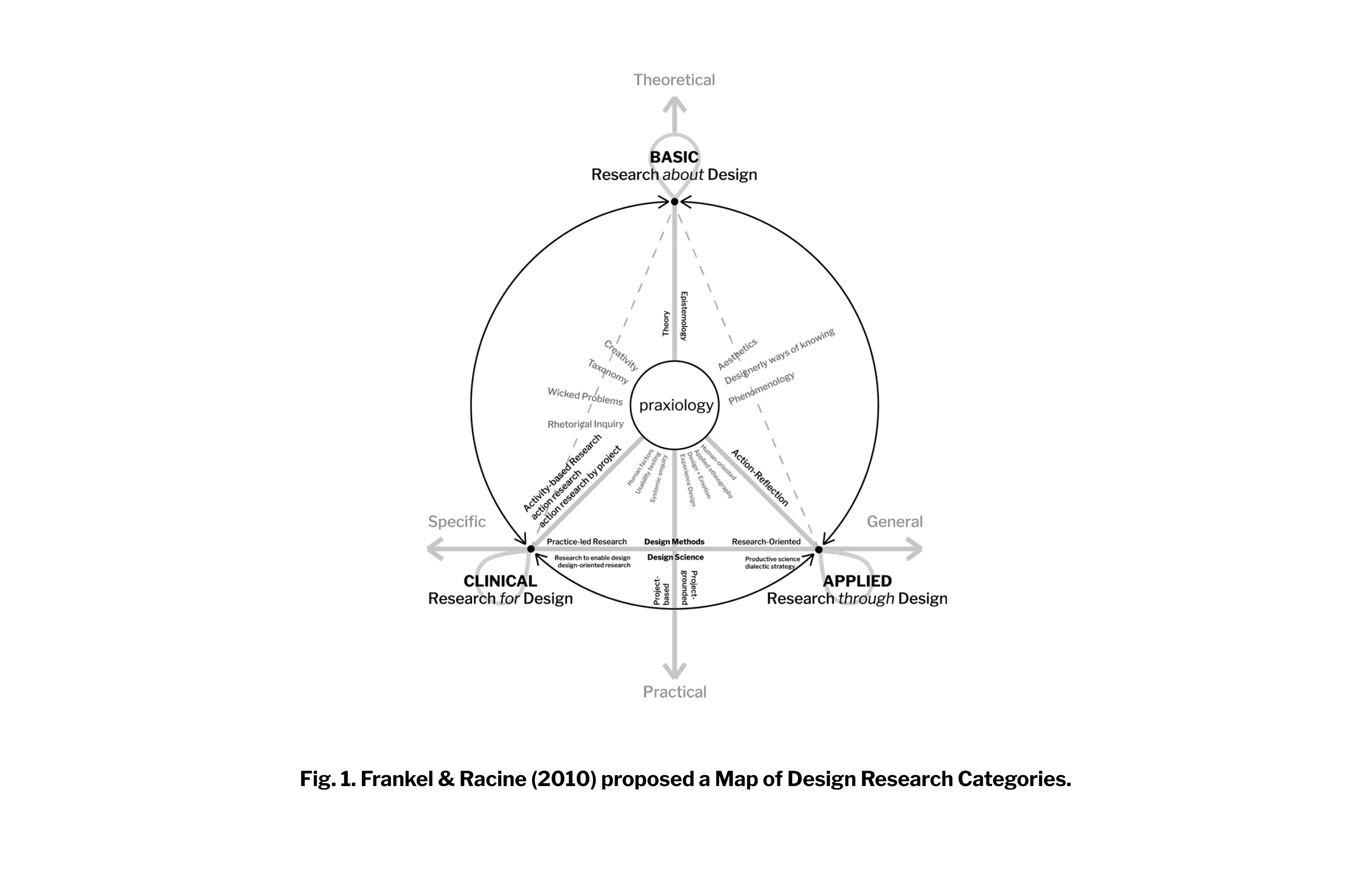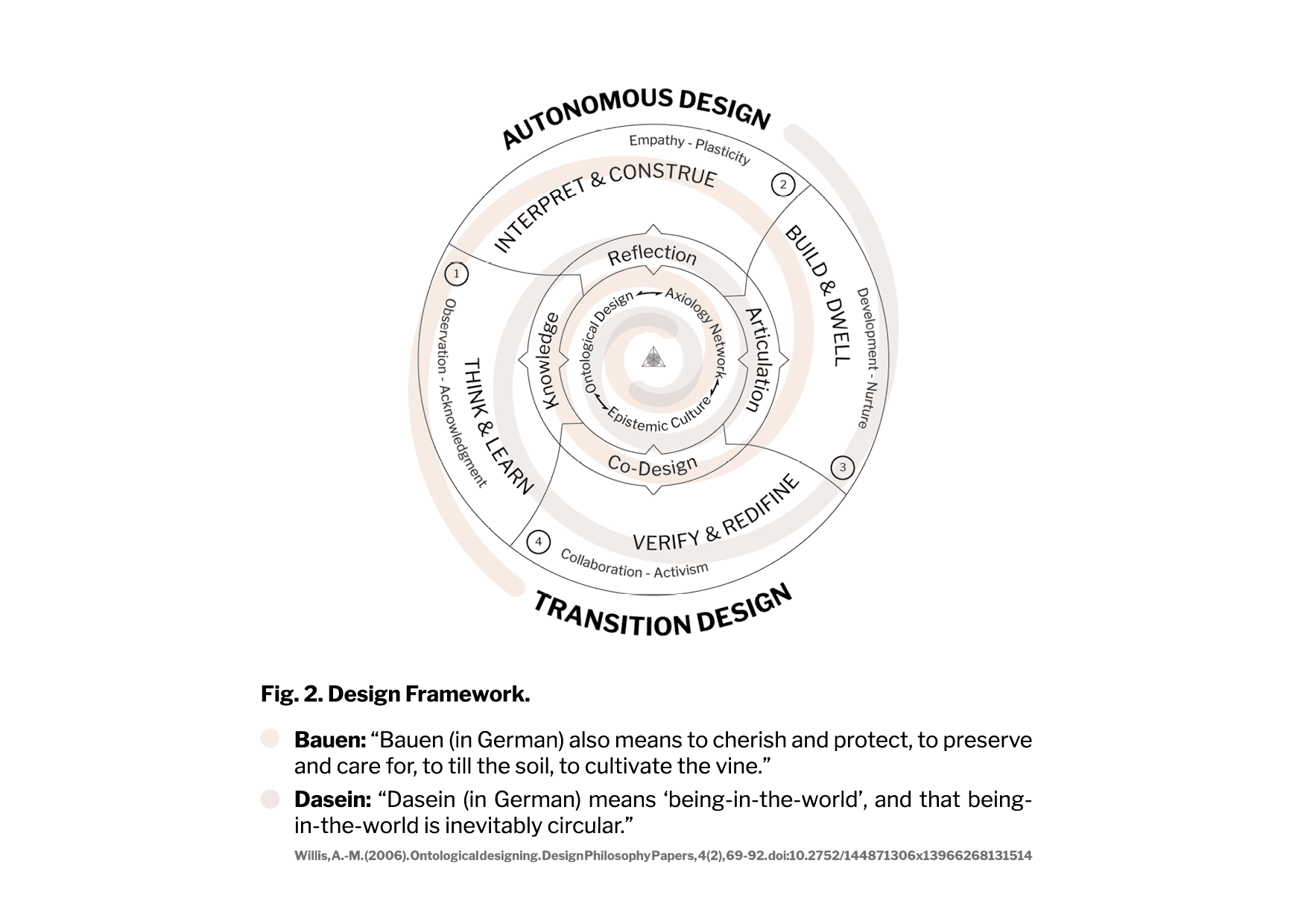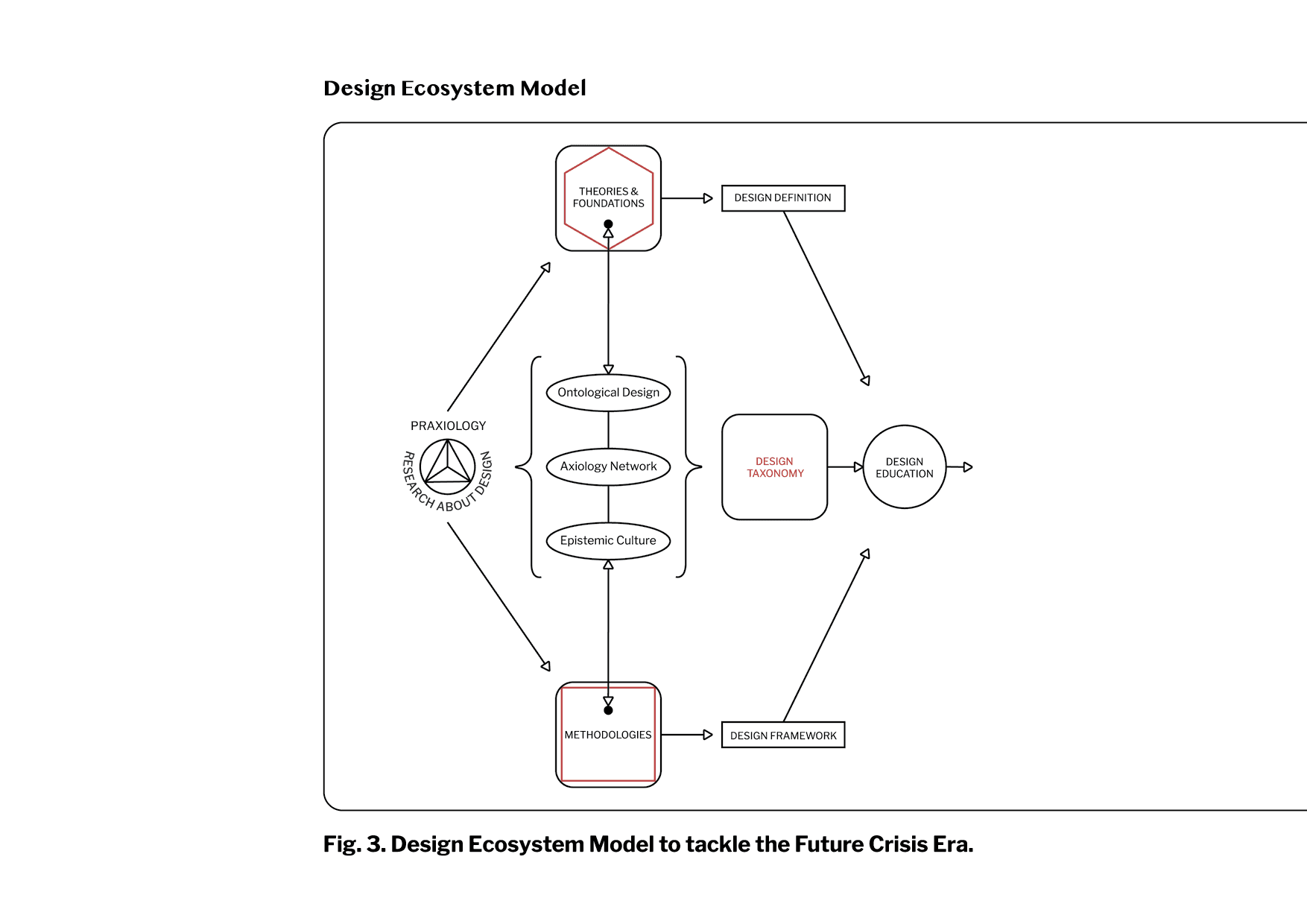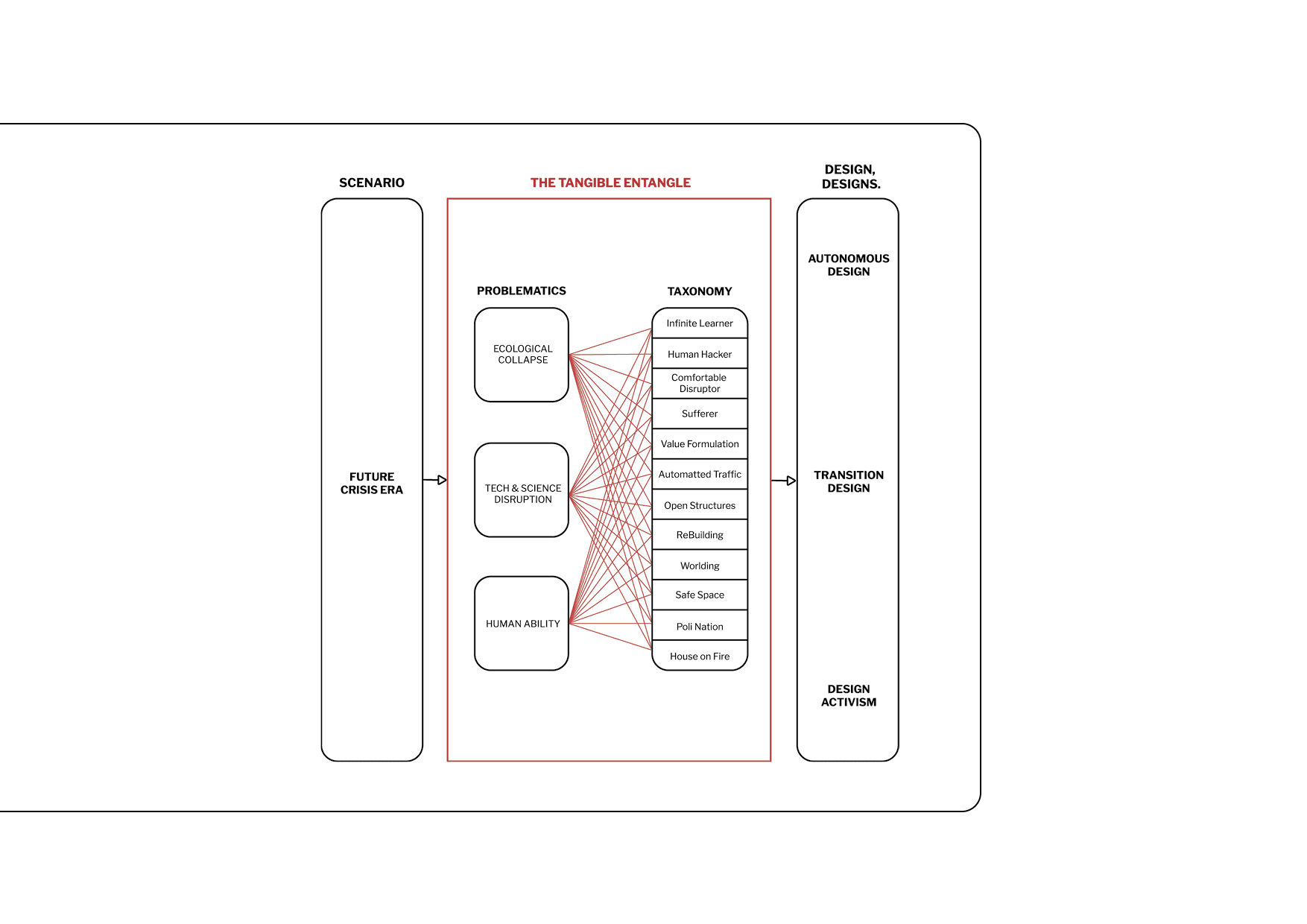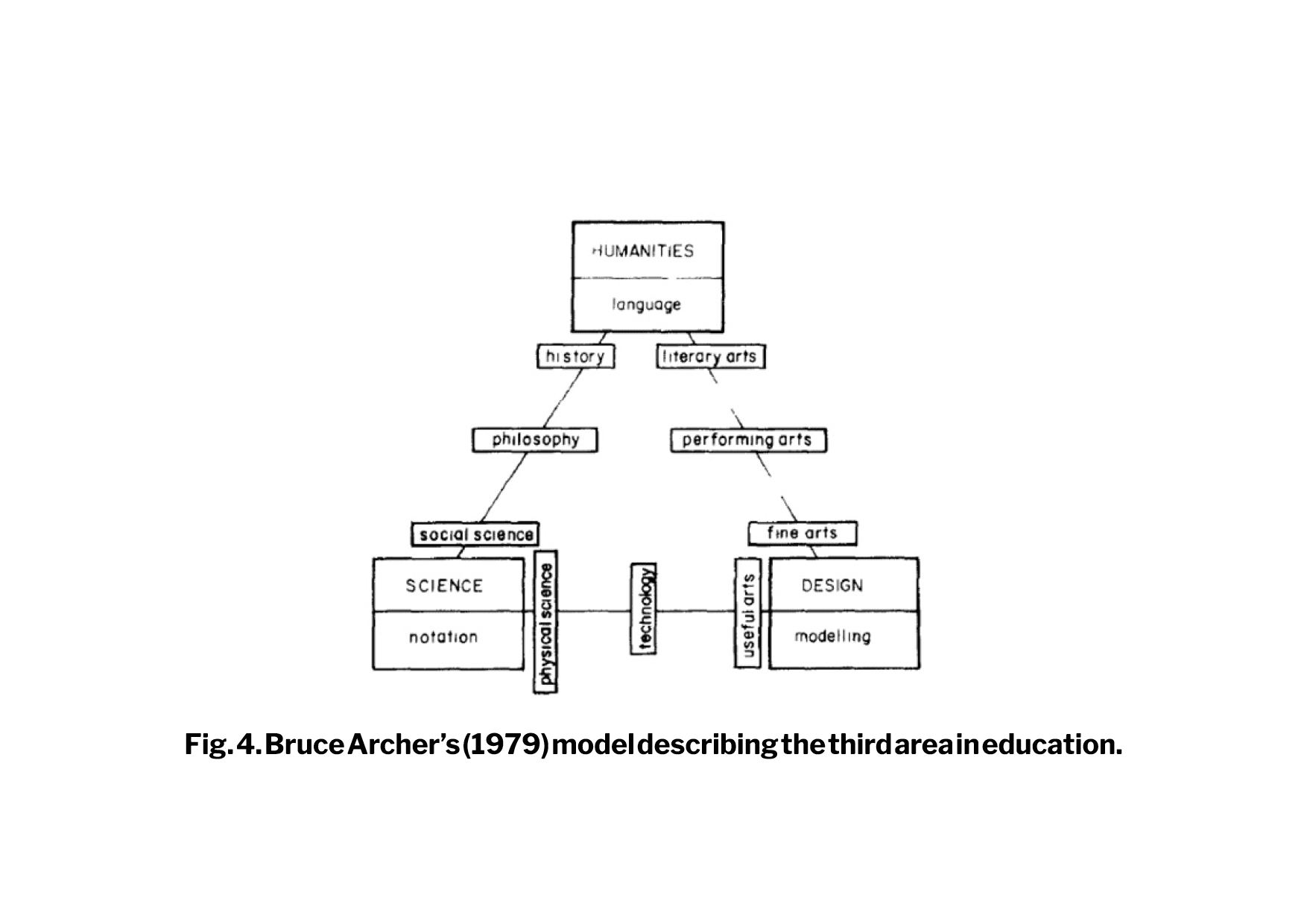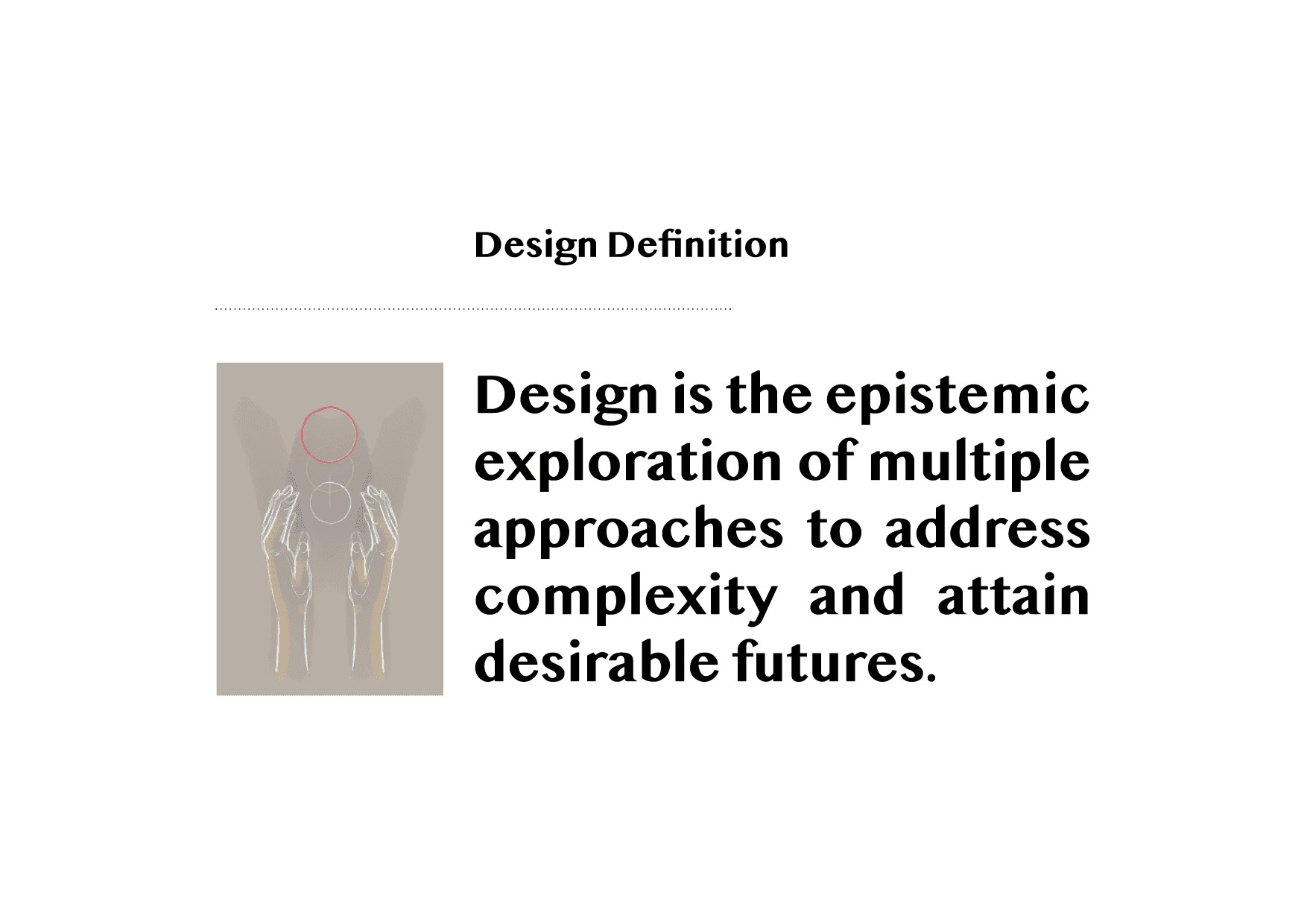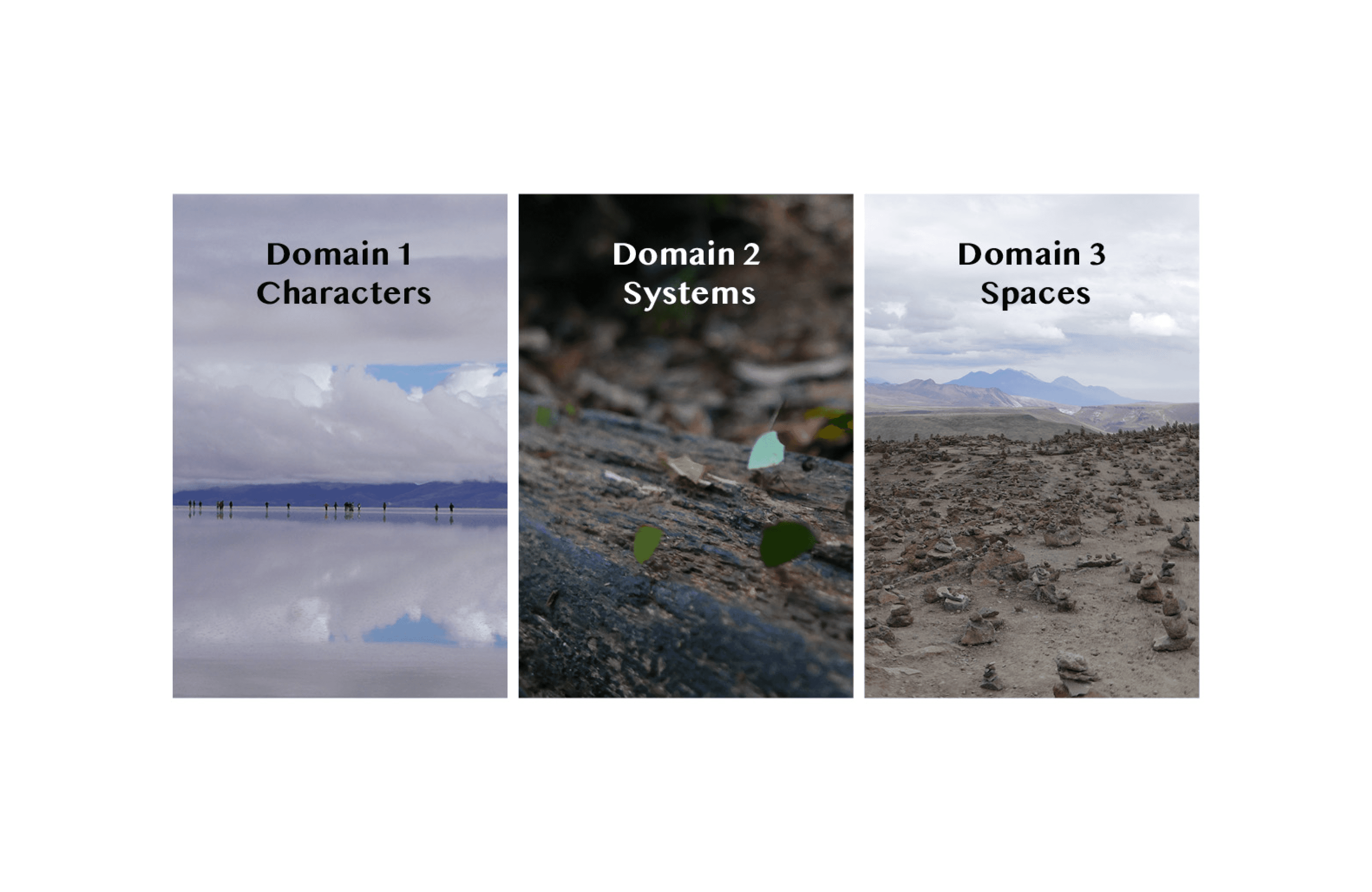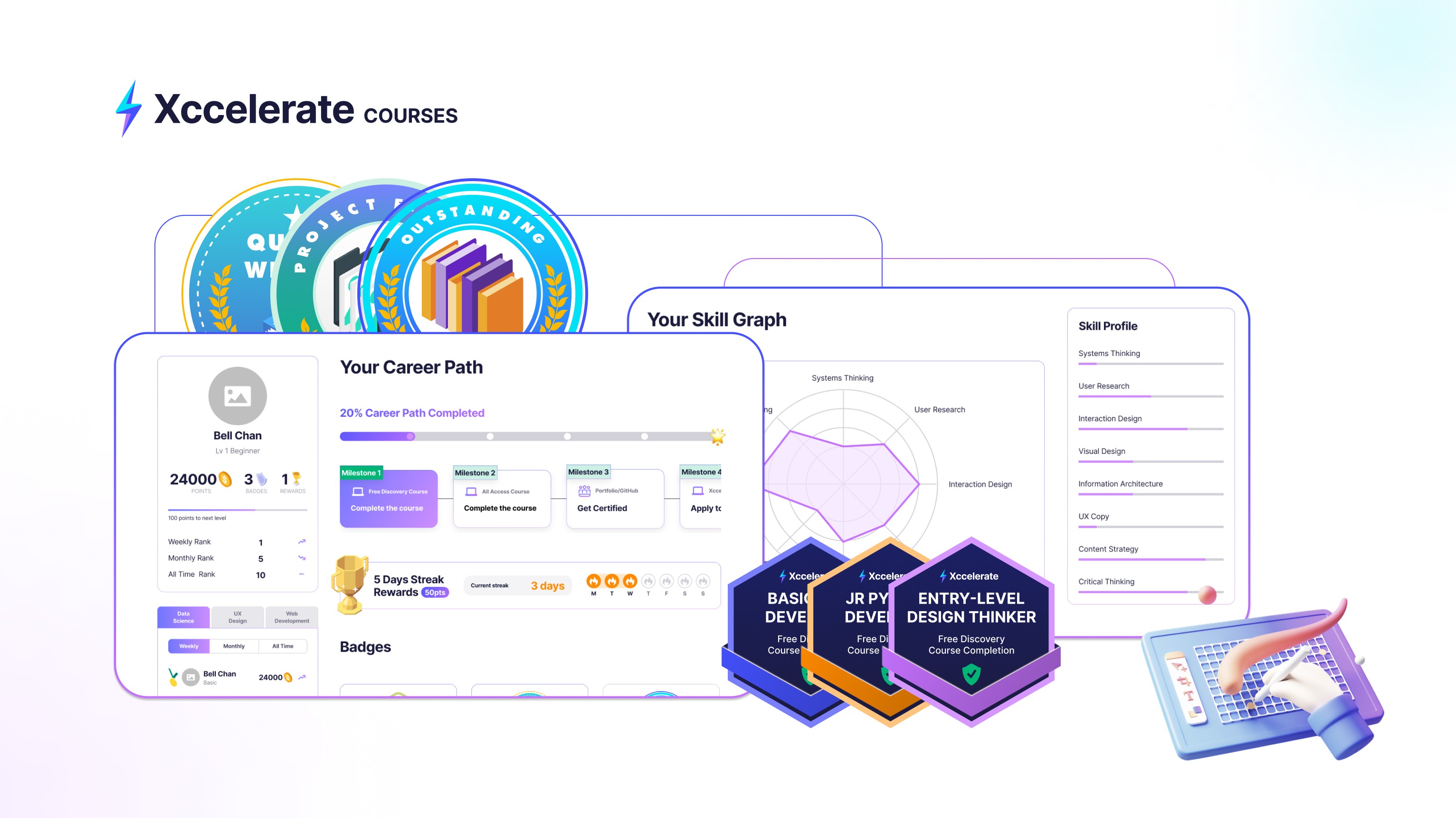The Tangible Entangle
The Anthropocene era will bring numerous challenges to the world in the next decade. Design is gaining recognition as a field for political action, shifting its focus from aesthetics and consumption to contributing to the greater good.
This is a brief summary of my master's thesis in Design Strategies at the Hong Kong Polytechnic University. The research aims to develop a Design Taxonomy that collates multiple concepts, theories, and methods relevant to the forthcoming crisis era.
Project details
Client
Master's of Design - Thesis
Project
The Tangible Entangle
Year
2020
Services
Design Research Meta Design Strategic Thinking
Credits
Jiselle Orozco - Branding

Category
Meta Design, Design Research, Strategic Thinking.
Purpose
Masters in Strategic Design Thesis.
Problem Statement
How can design assist in radical times for the world’s future crisis?
Numerous studies indicate that the planet and humanity are on a path towards severe crises in the next decade. These include ecological collapse and significant technological and scientific disruption, driven by humanity's inability to address growing "wicked problems."
Hypothesis
Design is a tool for addressing the world’s future crisis to enhance humanity and the planet mutually.
Key personal challenge(s)/learning(s)
The biggest challenge in writing my master's thesis was organising my thoughts and ideas effectively. I had to create a clear structure, work within deadlines, and process a vast amount of information. Another key aspect was reflecting on my role and responsibilities as both a designer and a person. In the end, I concentrated on exploring the philosophical foundations of design and how they connect to a broader system of values.
Solution and Impact - What?
The Tangible Entangle is a proposal for a Design Taxonomy, categorising and organising various concepts and resources for research about design (Figure 1). This study aims to democratise design knowledge, making it accessible to everyone, not just designers. As Cross (1999, p. 5) notes, "design is a natural human ability." The future of the planet depends on the collective efforts of all humanity, not just designers.
Framework - How?
This work is grounded in Speculative Design, Foresight, Backcasting, Storytelling, and Critical Design. The future scenario is the result of a comprehensive study and analysis, culminating in a framework proposal that leverages design's adaptability to tackle "wicked problems" with meta-poietic flexibility.
My framework (Figure 2) builds upon the knowledge gained from secondary research, integrating different epistemic cultures. Its ultimate goal is to bridge the gap between theory and design practice, as well as education, through the entire Design Ecosystem Model (Figure 3).
Design Education & Study Dissemination
Design draws upon human experiences, skills, and consciousness to appreciate and adapt to various environments. This process creates an active system (axiology network) for its dissemination in society and the planet.The dissemination of design is rooted in education. By bridging the gap between humanities (language) and sciences (notion), design fills the "third area in education," as Bruce Archer describes it (Figure 4).
My Design Definition
Design is the epistemic exploration of multiple approaches to address complexity and attain desirable futures.
Many design philosophers, scholars, theorists, and professors have influenced my design definition. Throughout this thesis, various thinkers are referenced, including Victor Papanek, Humberto Maturana, Arturo Escobar, Tony Fry, Anne-Marie Willis, Ezio Manzini, and others. These influential guides have played a significant role in shaping this research.
The Tangible Entangle - Method
The Design Taxonomy consists of three domains: characters, spaces, and systems. By organising these fields, the intention is to classify, categorise, and poeticise (Rolfe, 2017). The synergies, connections, and echoes that emerge from this classification will broaden the scope of the hypothesis.
The card deck provided alongside this work is a tool designed for both educational and practical purposes. The characters, systems, and spaces presented are intended to be reflective in different contexts and applicable to various design challenges.
Conclusion & Next Steps
This Design Taxonomy aims to synthesise knowledge, spark curiosity among designers, and potentially inspire them to redefine their understanding and practice of design.
Follow @_karebukun_
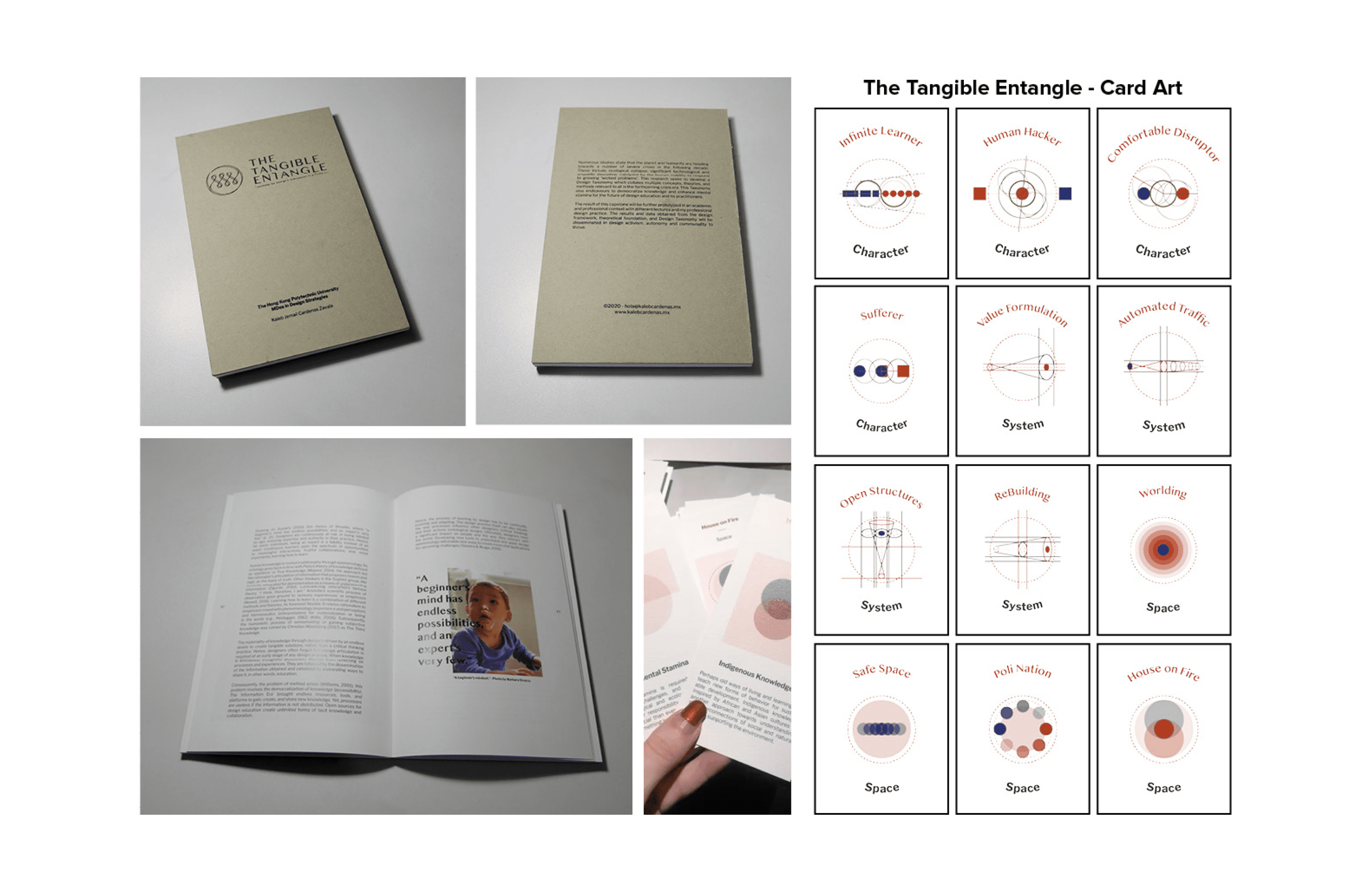
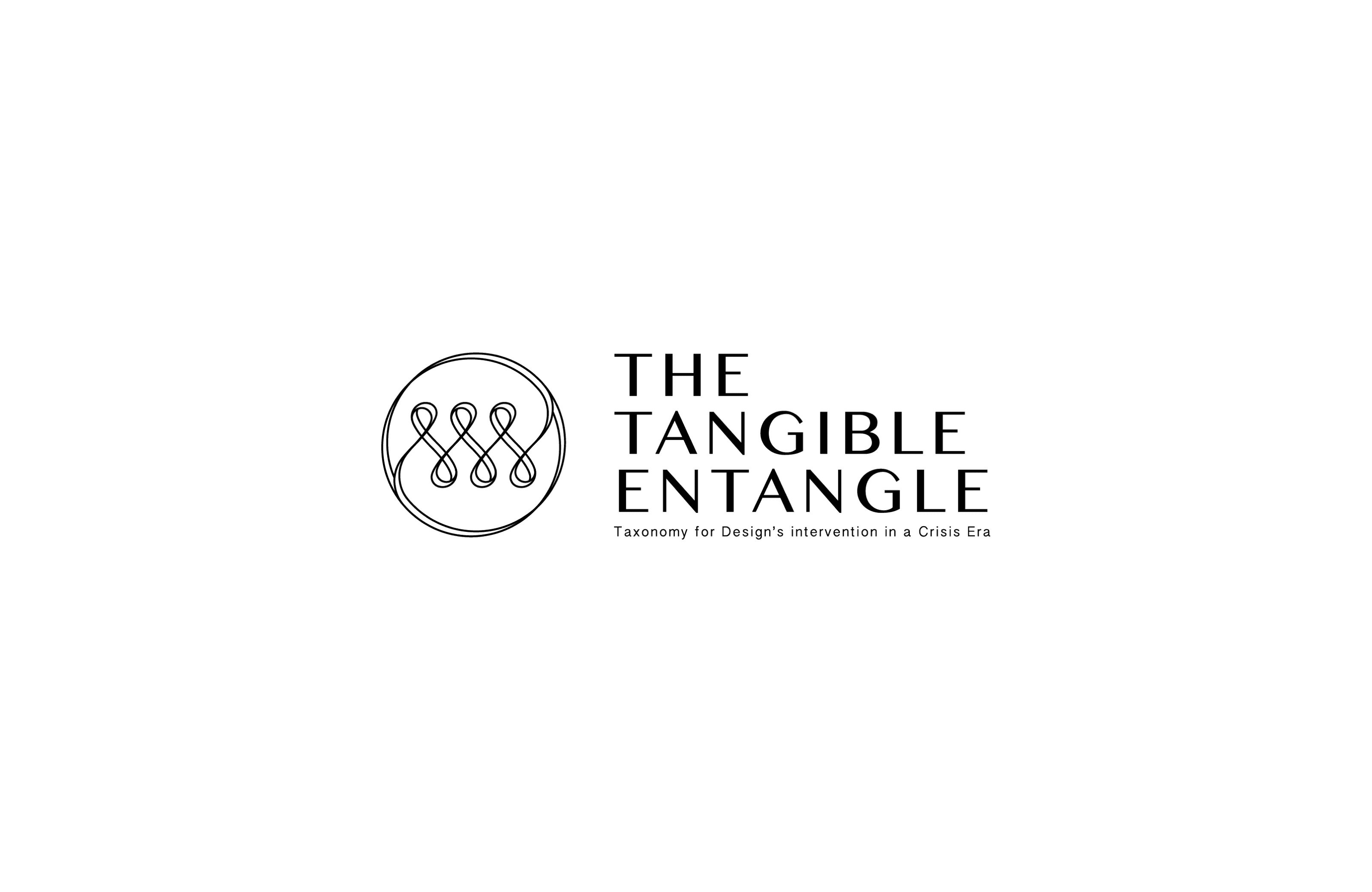
This was only a Glimpse.
I would love to share the full version with you. Connect with me on Linkedin or send me a message below.
